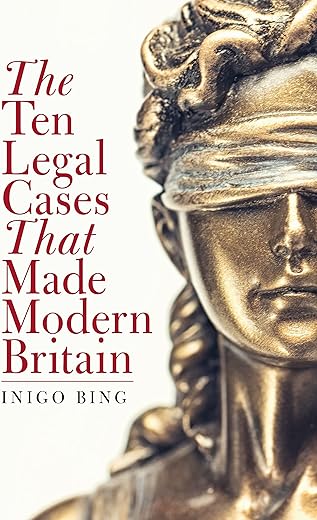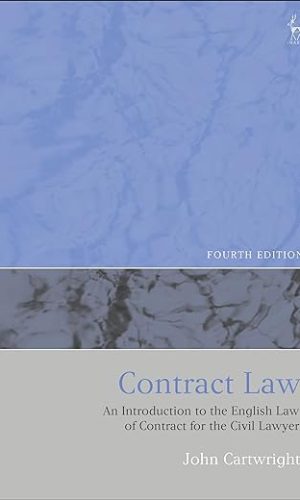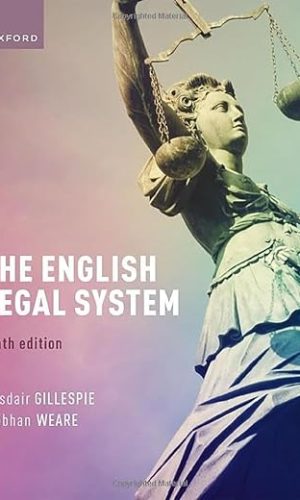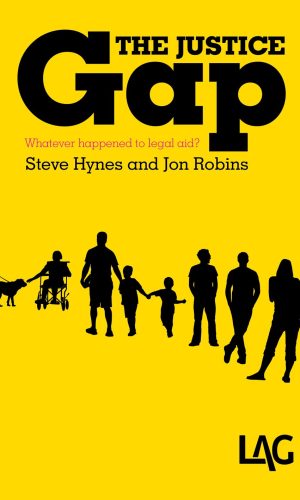The Ten Legal Cases That Made Modern Britain
£19.00£23.80 (-20%)
LIFE. SEX. RACE. POWER. FREE SPEECH. PROTEST. PRIVACY. DEMOCRACY. SOVEREIGNTY. DEATH.
Society shapes law… and law shapes society.
We like to imagine that progress comes about when Parliament spots a looming groundswell in public opinion and responds by changing the laws that govern our daily lives. This is not always true.
In this fascinating book, Inigo Bing unravels ten legal cases in which the decisions of judges or a jury either heralded a shift in outlook or forced Parliament to respond to simmering social change.
Some of these cases demonstrate the role judges have in defending our civil liberties against overweening executive power, articulating inherent unwritten rights Parliament would prefer to keep quiet about. Others explore what happens when rapid technological or social change outpaces government, placing urgent ethical dilemmas in the lap of the court. All of them have had a lasting impact on the society we inhabit.
Taken together, these stories provide a powerful insight into eighty years of British social, political and cultural history, illustrating why legal cases are just as important to making our world as laws written by Parliament or grassroots changes within society.
Read more






by Smartypats
I approached this book warily, expecting abstruse legalese and less than exciting prose. How wrong i was! it is lucid and clear, with each case logically laid out and easy to follow.
The first chapter, Life, deals with the seemingly insoluble case of conjoined twins, where total inaction will be fatal to both, but surgery means that one twin must die. Legal, moral, religious and ethical arguments are forensically laid out, with the children’s parents, doctors and religious leaders pulling in different directions. A real conundrum, whose outcome is certainly not obvious.
Sex looks at the pre-publication trial of D.H. Lawrence’s Lady Chatterley’s Lover. showing the absurd and sometimes downright farcical steps taken to ‘protect’ the public from obscenity. Everything hinges on the evidence presented to the court as to what constitutes ‘literary merit’, because without it publication will not be allowed..
Did we know there was no law of Privacy until recently? A group of shocking examples, including press invasion of a patient’s recovery room in hospital, illustrates this. Anyone who remembers the case of Cliff Richard’s house being searched and filmed for TV in his absence on a worthless charge of child grooming must surely be glad that steps have been taken to address the problem, though the process needs to be made more accessible.
The Ten Legal Cases offers a fascinating insight into the workings of our juridical system, showing how complex and nuanced many cases are. Not a difficult read, and a very enlightening one
by Inigo Geoffrey Bing
Most of us know about the judgment of the Supreme Court in the dispute over the unlawful prorogation of Parliament in 2019; some will recall the exposure by The Sunday Times of the thalidomide scandal in the 1970s and the “Lady Chatterley” obscenity trial in 1960, though only lawyers will be aware of Liversidge v Anderson , a case from 1942 about the power of a minister of the Crown to intern without trial.
What these four cases have in common is that they are examined by Inigo Bing in his new book, “ The Ten Legal Cases that made Modern Britain .“ As well as democracy, free speech, sex and power represented, respectively, by the four cases outlined above, sovereignty, race, life, and death feature in other chapters .
Of the many plus points in this book is that in each of the ten chapters the point in issue ,the respective arguments, the conclusions and the longer term lessons and implications are set out concisely and with a minimum of fuss and jargon, in some 30 to 40 pages per chapter. The reader does not need insider or legal know how to understand and appreciate the role these cases played in influencing debate and standards in our society.
Though sometimes revealing his own inclinations ( his slip shows ,for example, when comparing Prosecutor Mervyn Griffith Jones with defender Gerald Gardiner in the Chatterley trial and in his account of the deviousness of MI5 in Liversidge), Bing is scrupulously fair in putting all sides of the argument with clarity, humanity and with a nice sense of the narrative and of the people involved in these cases. Quite rightly he salutes those litigants in his acknowledgements.
As a former judge, the author , quite understandably, places the role of the judges and their decisions in these cases front and centre of his analysis though once or twice , perhaps , he attributes to them rather greater success than they have in fact achieved. Thus, on privacy, the press still appears to be able to intrude on private matters with impunity and without penalty or sanction, the ‘ public interest’ argument still appearing to hold sway; on assisted suicide, it remains the case that Parliament is in thrall to, in particular, the religious lobby and has not had the courage to legislate.
Others may have different little quibbles ; that is their prerogative but they need to read these incisive 10 chapters first. I strongly urge them to do so.
Roy Shutz
by Kevin Carey
Inigo Bing: The Ten Legal Cases that Made Modern Britain, Biteback, 2022.
In spite of its growing salience in the past half century, outside the most lurid and salacious cases, the Judiciary, as Inigo Bing notes, largely went under the radar until the end of achieving Brexit by its fanatical supporters came to justify any means, including the trashing of judges by newspapers and politicians who characterised themselves as strong adherents of “law and order.” Indeed, during that period of increasing Judicial Review, such was the mistrust of politicians that they were apt, by no means as a last resort, to toss difficult matters to judge-led enquiries to such a degree that the balance of power between the Executive and Judiciary might have come to be a legitimate if not an acute issue, the purpose of judges, after all, not being to get the Executive off the hook. With the famous 2019 Prorogation case, Executive suspicion of judges, an utterly lawless Prime Minster succeeded by an utterly blinkered one, the tide may well have turned, giving judges a much lower national profile except for the occasional case which arouses the tabloids.
Yet, as Bing argues in his eminently readable Ten Cases that Made Modern Britain, in the past hundred years or so the Judiciary, in deciding cases brought initially to the courts, has had a powerful influence on the way particular aspects of the Law are framed and re-framed, often acting as a conduit for popular opinion in favour of change in the face of legislative timidity.
Judges like Bing are trained to listen forensically and sometimes imaginatively – law not being as fact-based as the textbooks avow – to stories, but I doubt there are many who have adapted their experience to tell stories as well as Bing. There are a few places where intricate matters of law necessarily slow down the reader but by and large this is a page-turner. The ten stories told vary in the public consciousness from the well-known, like the Chatterley trial, to the obscure or, through tabloid prejudice, the obscured, such as the case of the Spanish fishermen. Some cases, such as that of Gorden Kaye, resulted in a relatively rapid change in the legislative framework of privacy while others, such as that of Sir Learie Constantine, were more like slow-burning fuses. Bing is never less than passionate and vivid but it is perhaps inevitable that the best stories revolve around recognisable, even famous, people. I liked best the case of Constantine not only because he was as gracious as he was famous but also because it highlighted the marked British trait of passing the parcel: “it wasn’t me who was racially prejudiced in refusing the man entry but so-and-so who required appeasement”; how quick we are to please others in the name of pleasing ourselves.
In arguing for his ten cases, Bing writes a vigorous Introduction in a similar vein to that of his previous, highly readable, book defending the Judiciary and, given his background (we had parallel almost equally unsuccessful political careers), he occasionally strays into political advocacy, but rather than complaining about this I wish he had written a closing piece drawing his distributed comments together on the perils we now face, not least the down-grading of our human rights from a fixed European Convention to a febrile United Kingdom legislature.
Sometimes, as Mr. Bumble said, the “law is an ass” and sometimes it is a three-legged elephant but, at its best – and in these cases it was largely at its best – it is the embodiment of the highest human achievements in philosophy, logic and ethics showing that we can separate our personal preferences and prejudices from the remit under which we operate. Everybody who does not know much about the law or has forgotten too much about it should read this book as a means of instruction; the rest, who know, should read it for sheer entertainment. –
Kevin Carey, Hurstpierpoint, September 2022.
by B. Rossini
Nicely written but lacking the legal gravitas I expected.